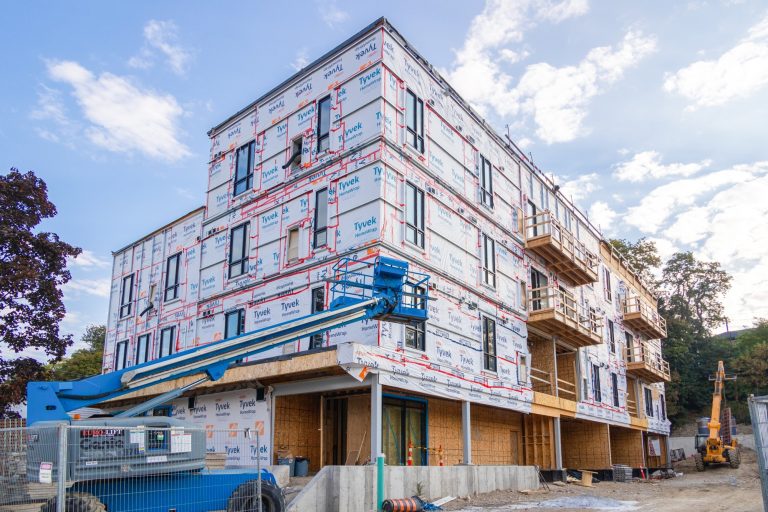The first transitory housing building in Waterloo Region dedicated to Indigenous peoples will be ready for residents in March 2024.
It will provide one-bedroom units for Indigenous residents and will also be the first native cultural centre available to the community in Cambridge.
This project is led by the KW Urban Native Wigwam Project (KWUNWP), a non-profit organization that has served First Nations, Metis and Inuit populations of Waterloo Region since 1987. The organization provides safe, secure and affordable housing for rent for Native people and their families with low or moderate income.
The new project is located at 27 Cambridge St. and consists of 30 new affordable housing units to serve Indigenous community members, 16 of which are dedicated specifically for Indigenous women and their children. The service is open to Indigenous folks, including couple where at least one person is Indigenous.
“The transitional housing project will give Native people of this community a chance to grow and prosper, while maintaining a dignified and culturally safe living environment for their families,” Lee Ann Hundt, executive director of KWUNWP, said.
Hundt said the project targets Indigenous folks of all ages—including couples where at least one person is Indigenous—and who have low income.
“We have never had housing for young people, couples, elders, students, because everything had been family oriented. For us, it is the first time we are going to have units available for single people,” Hundt said.
“We have been saying for a long time that we only had family housing programs, couples with children, that there were many people being left behind from this aid,” she said.
The main floor will contain a community room for events, workshops, ceremonies, drumming, and training, with a full kitchen for community lunches. As well as a small meeting room on the second floor that can be used by tenants and other organizations as a space for workshops and meetings.
KWUNWP uses the medicine wheel to guide decision-making and service delivery, providing a very personalized experience based on the client’s journey and story. Hundt said a lot of their clients face long-lasting issues and so they pay attention to physical, mental, emotional and spiritual needs.
“[U]nderstanding where they have come from is an important part of the process…We often find that spiritual needs are the biggest part, as sometimes Indigenous people have lost contact with their culture and communities and can feel lost,” Hundt said.
“We try to give them options so they can make decisions about their lives that may have been unavailable to them in the past,” she said.
The project faced delays during the COVID-19 pandemic, especially with a lack of resources.
“Thanks to the rapid housing and the Truth and Reconciliation movement, they have started to acknowledge our voices and the needs of our community,” Hundt said.
For more information, visit kwunwp.weebly.com.

